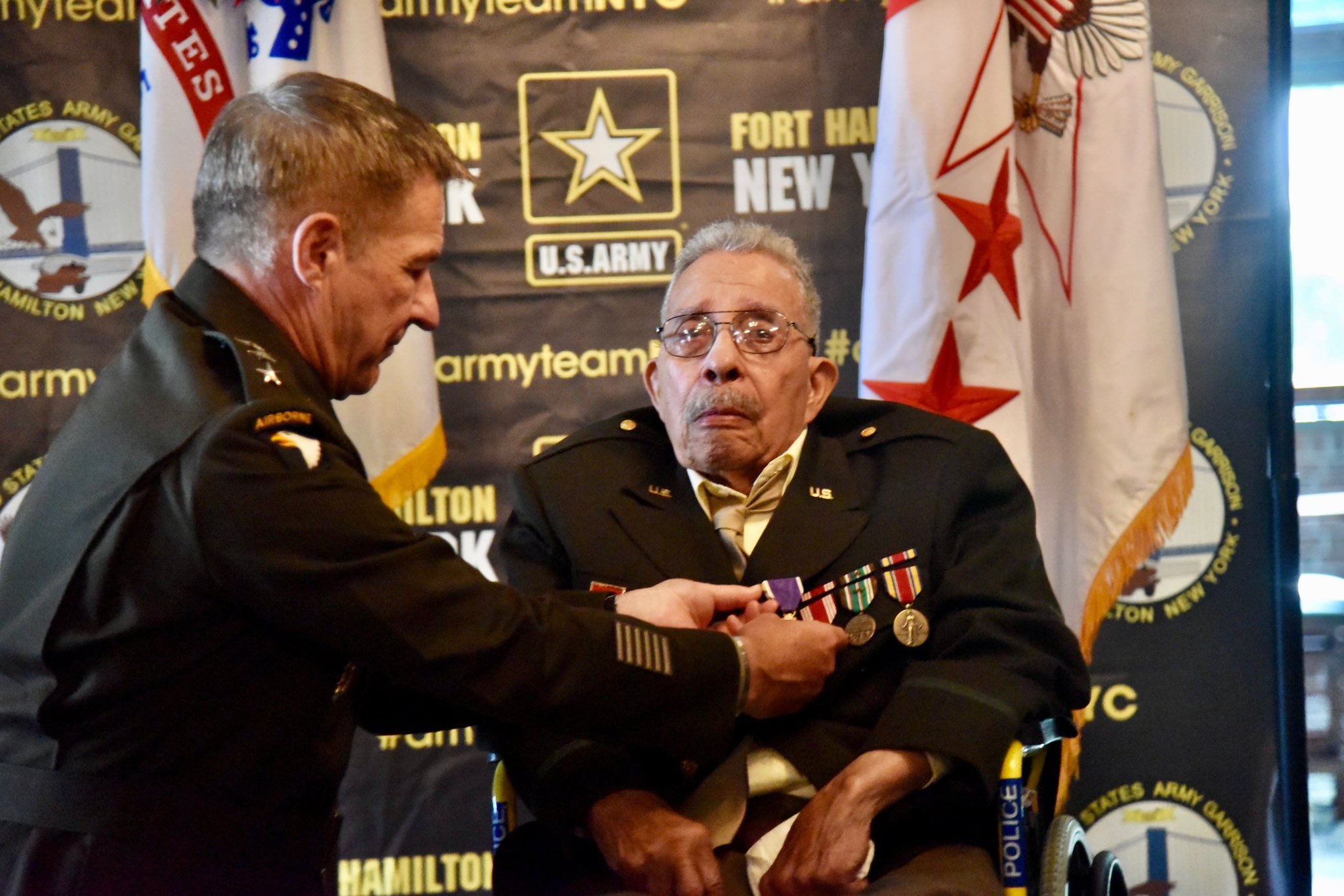“Black soldiers didn’t get the Purple Heart,” Osceola “Ozzie” Fletcher told Our Time Press last year. “They got injured, damaged, hurt. But they never got wounded. Only the white men who were wounded (hurt) got Purple Hearts.”
Seventy-seven years ago, due to the color of his skin, Fletcher was denied a Purple Heart for injuries sustained on June 6, 1944, during the Normandy invasion.
On June 18, that wrong was righted as the 99-year-old was presented the medal by Gen. James C. McConville, chief of staff of the Army.
“It was an honor and privilege to pin a long overdue Purple Heart on a great Soldier and member of the Greatest Generation, Mr. Ozzie Fletcher,” Gen. McConville told The Washington Post. “This week, we were able to pay tribute to Ozzie for the sacrifices he made in service to our great Nation during World War II.”
The contribution of those soldiers was mostly overlooked — with many if not all denied medals due to racism within the still segregated U.S. Army.
“It was everyday discrimination,” Streets told The Post. “It was the other American soldiers that gave them [Black soldiers] the hardest time.”
Drafted in in 1942, the New York Native served in the 254th Port Battalion and was one of 2,000 Black troops who saw action on D-Day, according to the U.S. Army.
The then-22-year-old Army private was delivering supplies to Allied forces when his vehicle was struck by a German missile. The attack overturned the truck, killing the driver and wounding Fletcher in the process.
Jacqueline Streets, Fletcher’s daughter, told the Post that her father rarely spoke of his service until his friends began passing away several years ago.
“He was really determined in telling the story of how African American soldiers did not receive their due. It became my mission to get him this Purple Heart.”
It was not a straightforward battle, however. Fletcher’s military records were burned during the 1973 National Personnel Records Center fire.
“A lot of times, [soldiers] never received the documents required,” said Lt. Col. Scott Johnson, the Army Human Resources Command’s chief of awards and decorations in an April news release. “Most times, they did not even make the documents. That is the most challenging part for us.”
“I could pull from their testimonies and multiple other sources and historical data,” he continued. “It was exactly like they laid out. Where they were, what they were doing, what types of munitions were being used against them, what types of weapons [were used]. It was very interesting to see these stories come together… These men have the scars and stories that are hard to ignore.”
However, the events of that day were eventually pieced together and by April of this year — more than 77 years after being wounded in combat — Fletcher’s Purple Heart was pinned to his military uniform as “The Star-Spangled Banner” played in the background.
When asked how he felt about receiving the medal Fletcher was succinct:
“It’s about time,” he said.





